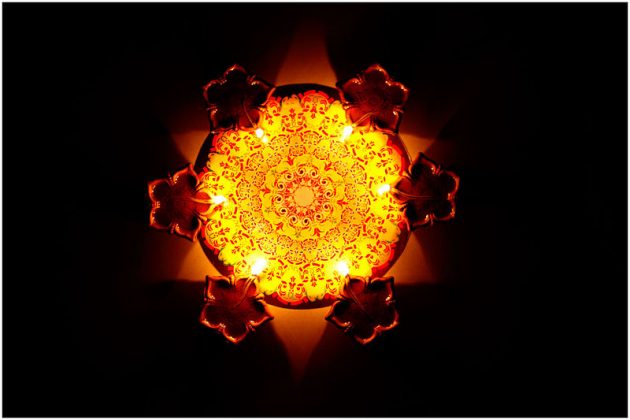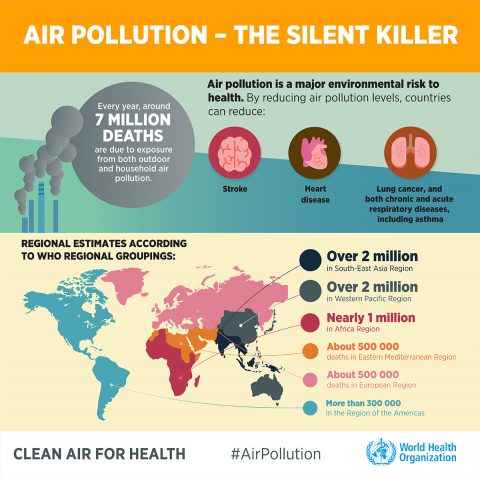What you can do during Diwali to save the environment?
Diwali is a festival of light originated in India but is now celebrated across many countries with significant Indian population. Diwali is also known by Deepavali in Sanskrit which means “row of lamps” symbolizing “victory of light over darkness”. Diwali is a major cultural event and mainly celebrated by illuminating homes, shops, temples and other establishments with several lamps.

However, currently, Diwali is celebrated with firecrackers which produce irritating noise and hazardous smoke. Firecrackers have become an integral part of Diwali celebrations and one cannot imagine Diwali without them. With growing concerns of air pollution across major Indian cities, smoke generated from firecrackers in Diwali add into severe air pollution.
Barium, Cadmium, Lithium and Strontium compounds, copper and sodium salts, and magnesium metal are used to produce firecrackers. These chemical compounds produce bright light of various shades when burnt. However, it comes with a cost of toxic smoke. Largely the smoke constitutes particulates and a mix of poisonous gases such as benzene, carbon monoxide, nitrogen dioxide, sulfur dioxide, and ozone. Further, these gasses create a SMOG which is more dangerous to health. According to the research paper titled “The air pollution during Diwali festival by the burning of fireworks in Jamshedpur city, India” by Balram Ambade indicate that fireworks episode during Diwali festival affected the ambient air quality adversely due to emission and accumulation of PM10, SO2, NO2, O3, and trace metals.
According to World Health Organization (WHO), 9 out of 10 people breathe air containing high levels of pollutants, around 7 million people die every year from exposure to polluted air and about 4.2 million deaths occurs every year as a result of exposure to ambient (outdoor) air pollution.

However, we all can play a role to improve the situation of air pollution in Diwali.
- Avoid firecrackers or limit its use
For many of us, firecracker is always associated with Diwali but there are many reasons to go without them in this Diwali. Firecrackers create noise and poisonous smoke which is not good for the health. Loud noise coupled with intense light also give severe anxiety attacks to animals, especially birds. If you cannot avoid burning firecrackers, you can limit its use. Simple actions like avoiding noise producing firecrackers, participating (and organizing) community-based fireworks show in a responsible way, instead of decentralizing burning of firecrackers, etc. can reduce the burden. Though there is no alternative to conventional firecrackers, there is a light of hope as Scientists at CSIR Lab have developed Environment-Friendly Crackers “Green Crackers”. We hope these will be commercially available in near future.
- Use eco-friendly earthen diyas (lamps)
You can easily substitute candles and electrically powered lamps with earthen diyas. You might have noticed those small shops with beautiful diyas in the local markets. These diyas are not only beautiful but are bio-degradable, cost-effective and give traditional look to your homes and offices.
- Eco-friendly gifts
Diwali is also a festival to give gifts to friends and family. What can be good than gifting eco-friendly products to them? It not just saves the environment but also educate them about environmental conservation. You can gift beautiful terracotta diyas (lamps) of various size, shapes, and colors, bonsai and other plants, jute bags, organic tea, and other consumables, khadi clothes, etc.. Don’t forget to give a personal touch to your gift with sustainable, recyclable packaging.
You can take many other but important actions like using recyclable home décor products, preferably made up of eco-friendly materials like bamboo, donating your old clothes to the needy ones, avoid use of plastic bags and unsustainable packaging materials, discarding your house and office waste responsibility, and not but the least meeting family members and friends. After all, meeting and spending time with family and friends is the best thing you can do in any festival and Diwali, a festival of lights is the best occasion to do that
Happy Diwali!
Image credit: Rangoli , WHO Info-graphic

